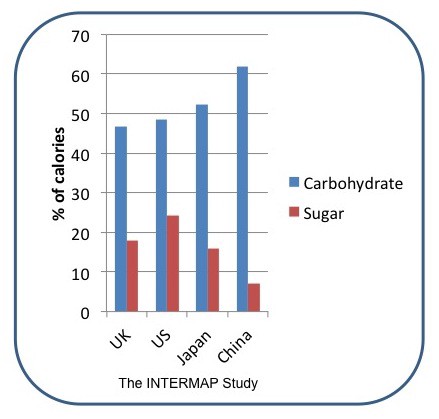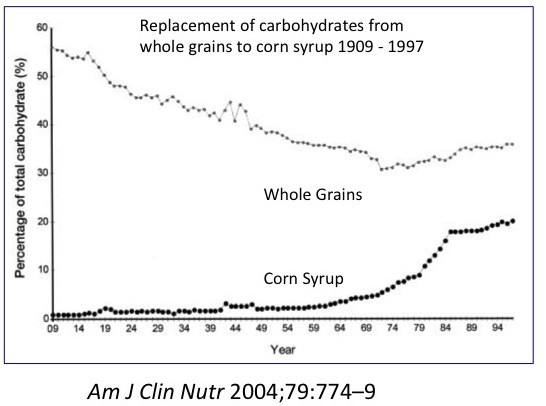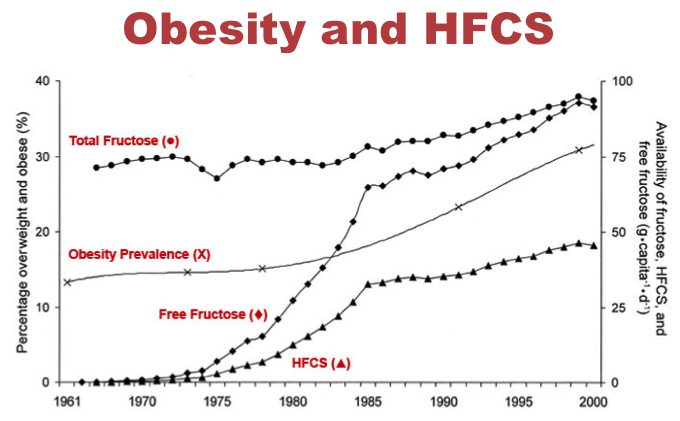Dr. J. Fung did a little review on Dr. Robert Lustig’s 2009 video called: “The Deadly Effects of Fructose” what is so scary is how silent HFCS is…the liver turning it directly into visceral fat, no insulin needed? I do wonder if that’s possible without insulin? Dr. Lustig said himself in one of his presentations that: “…glucose blood sugar levels are not the same-thing as insulin levels or chronically elevated levels of insulin? …” I would think the chronically elevated levels of insulin (i.e. HOMA-IR?) would be from the fatty liver (NAFLD) and fatty pancreas? Two different types (WAT & VAT) of fat storage going on? Insulin type of fat storage and the HFCS type?
After burner affect?
“…Fructose, which neither raises blood glucose nor insulin was considered more benign than other sweeteners for many years. An all-natural sweetener found in fruit that didn’t raise the Glycemic Index sure sounded healthy. But it had a hidden dark side, one that was not obvious for many decades.
The toxicity of fructose could not be seen by looking at the blood sugars, only by looking at the slow accumulation of fat in the liver. The key was the fatty liver. …” - Dr. J. Fung


Note: ”…Free fructose vs. naturally occurring: So, too much fructose is no good. However, it is important to differentiate between free or added fructose over the fructose packaged into whole foods. It is generally agreed that consuming fructose when encased in its natural form, such as in fruit and vegetables, isn’t of concern. …” …More

